What is prostatitis they know that many representatives of the male sex. The disease is manifested by frequent urges to urinate, pain, erectile dysfunction, and other symptoms indicative of a pathology of the genitourinary system. To clarify the diagnosis requires consultation urologist, who discovers the cause of the malaise, and explain what is this disease, which means his name, what are the symptoms and treatment.
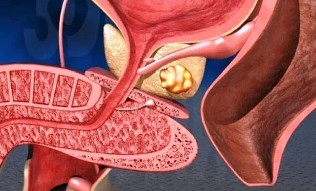
The function of the prostate
The prostate — unpaired organ, consisting of glandular tissue and covers-the muscle of the film, which is located in the front of the pelvic area. The upper part in contact with the bladder, rear — right, and front — the pubic bone.
The main purpose of the prostate – selection special secret, which provides sperms vitality and mobility.
This substance is produced a segment – slices, surrounded by the muscle membrane.
The other functions of the prostate are:
- protection against urination;
- prevention of launch of ejaculation in the bladder;
- prevention of infection of the upper urinary system (kidneys, ureters).
The work of the prostate control the androgen, estrogen, steroids, and hormones of the pituitary gland.
Description of the disease
The male prostate gland (prostatitis – the erroneous write) – this is the most common pathology of the prostate, accompanied by inflammation, disorders of urination and sexual disorders. Swelling causes a narrowing of the channels of the prostate, may interfere with the normal outflow prostatic juice and causes congestion.
Often the disease of the prostate in men are diagnosed at age 25 – 50 years. Sometimes the disease make themselves known sooner or later.
The causes of
Prostatitis in men develops due to the following reasons:
- Non-communicable diseases. Often the performance of the prostate involves the violation of the circulation of the blood and lymph in the prostate gland, as well as the congestion associated with rare ejaculation. Sometimes the disease develops because of too frequent sexual contacts or regular agitation (e.g., motorcyclists).
- Infectious. The inflammation of the prostate gland develops on the background of infections. These can be bacteria, viruses or fungi, which fall into the prostate through the blood or the lymph from the urethra or remote infected sources (the throat, the teeth of the maxillary sinus).
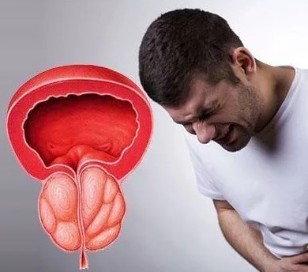
The factors causing the prostatitis in men, are:
- hypothermia;
- injury;
- genetic predisposition;
- inactive life style or new physical overwork;
- stress regular;
- bad habits;
- bad power supply;
- insomnia lack of sleep;
- a weaker immune system;
- infectious processes chronic;
- the tooth decay.
The main cause of illness is considered to be a violation of the outflow of blood capillary, which leads to stagnation, decline in immunity and the proliferation of the bacterial flora.
The impact of unfavorable factors aggravates the inflammation of the prostate, and prolongs the duration of the treatment and promotes the development of complications.
The types and the symptoms
The inflammatory process of the prostate is manifested:
- pain in the pelvic area (to the outflow of urine, ejaculation, defecation);
- frequent urges to urinate;
- the issue of blood, mucus, pus from the urethra;
- turbidity of urine;
- decreased libido and other problems.
The severity of the clinical signs depends on the cause and the form of the disease.
Sharp
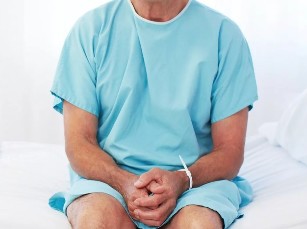
Acute inflammation of the prostate is usually accompanied by high body temperature (axillary, rectal) and signs of intoxication (of the head and articular pain, shivers, nausea).
Sick of the prostate gland compresses the surrounding tissues, the nerve endings and causes:
- constipation;
- violation of urination, up to the complete cessation of the flow of urine;
- pain in the lumbar region, the scrotum, the groin.
Acute prostatitis in men most often appears on a background of infection of the prostate pathogens.
Important! Sometimes the acute inflammation of the prostate appears on a background drawn before the biopsy.
Chronic
The inflammation of the prostate often accidentally touch the control programmed, or examination of other diseases.
The progression of the disease leads to disruption of the morphology and functioning of the prostate, which is manifested:
- the pain;
- dysuria;
- sexual disorders.
Calculous
This is one of the most common complications of the chronic form of the disease characterized by formation of stones in the segment.
How is it manifested impressive the prostate gland in men, which has been subjected calculous inflammation depends on the degree of severity. The main clinical signs show the stupid aching pain in the groin area, pubic and eggs.
The long absence of treatment fraught with the development of inflammation of the seminal vesicle, abscess of the prostate gland, sclerosis of the prostate.
Stagnant
For the disease of prostatitis and why it develops, not everyone knows the representatives of the male sex.
This kind of are people who:
- just move;
- have bad habits;
- accustomed the most part of the day to lead the session;
- do not lead a normal sexual life;
- practise the interrupted sexual acts.
The symptoms of inflammation of the prostate gland on the background of stagnation of identical events and chronic calculous forms of the disease, and then to clarify the diagnosis requires laboratory and instrumental diagnosis. The first sign that manifests itself to a stagnant prostatitis in men – the deterioration of erection.
Infectious
The cause of the disease it is understandable from the name. Often the prostate affect the bacteria, it is extremely rare viruses, and fungi. In the majority of cases of infection is an inflammatory process of the prostate is a complication of other forms.
To it the consequent reduction in the total or local immune system in the background:
- hypothermia;
- other acute or chronic infections;
- of tumors;
- autoimmune diseases;
- violation of the work adjacent organs;
- style of life that is wrong.
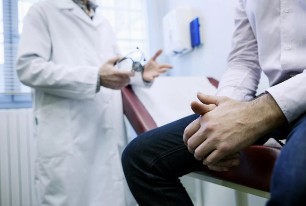
How it happens the prostate gland in men, which has been subjected to inflammation (infectious type, depends on the course of the disease. Often complaints remind us of the manifestation of acute or chronic prostatitis.
Purulent
In advanced cases in the pathological process involved the entire organ.
Advance (as it is) of the form suppurative inflammation proceeds with deleted the symptomatology and vaguely reminiscent of the manifestations of the disease the bladder cystitis. Progress, the pain intensifies, and appear to manifest signs of intoxication.
Abscesses form of more serious disease and often leads to peritonitis, sepsis and death.
Diagnostics
In the primary treatment gland observed through the anus. During palpation the doctor determines the size, the structure and the contours of the body.
In this phase, pre-diagnosis, which requires confirmation by laboratory investigations with the following methods:
- distributed and the biochemical analysis of blood;
- definition of PSA (prostate specific antigen);
- clinical and bacteriological examination of the urine, prostatic secret, taken from the urethra;
- sensitivity to antibiotics;
- sperm;
- the identification of the c-reactive protein;
- cystoscopy and histology puncture content.
Tools used:
- rectal ULTRASOUND;
- The CT scan or magnetic RESONANCE imaging the breast and other organs in the pelvis;
- a biopsy.
The diagnosis of the disease, they pass in public or private laboratories.
Principles of treatment
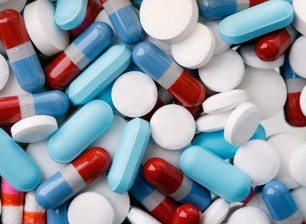
Where and how can I treat inflammation of the prostate, decides the doctor for the results of the analysis. If the patient's condition is satisfactory, then you can make a visit to the clinic, and house dressing. Otherwise, the doctor explains to a man the risks associated with the disease and insists on the treatment regimen. In more severe cases, the patient is hospitalized extra.
Complete
Conservative therapy includes the intake of drugs that may eliminate the cause of the disease, the congestion and the inflammatory process in the prostate gland.
In this list includes:
- antibiotics (depending on the results of the antibiogram);
- nonsteroidal anti-inflammatory drugs non-steroidal origin, or corticosteroids;
- immunomodulatory;
- vitamins and minerals;
- vasodilator drugs (in the absence of contraindications).
In case of severe pain prescribe painkillers or anti-spasmodics.
After resolution of the acute phase, use of physiotherapy techniques:
- massage of the prostate;
- electrophoresis;
- microwave therapy;
- ultrasound.
In the most serious cases pass through the partial or total prostatectomy (removal of the prostate). Prostatitis with the stones is treated in a manner identical schema, but the massage of the androgen-dependent organ absolutely contraindicated.
In the house
What is prostatitis and how to cure it, they want to know many men. For the outpatient treatment of the emergency is not over-patient in a hospital, it is necessary to perform all the recommendations of your doctor: drink prescribed the pill, avoid triggers, and not to self-medicate. In addition to the main therapeutic scheme useful medicinal herbs, which collects the doctor.
To eliminate the disease useful:
- chamomile;
- peony;
- the seeds and the leaves of the plantain;
- nettle;
- burdock root;
- pumpkin seeds.

Prevention
The best prevention of prostatitis in men – new appeal of a doctor and a adjustment of style of life, which must include:
- daily physical exercise;
- regular sex;
- a proper power supply;
- a good night's sleep.
Stress, bad habits and other factors, on the contrary, it must be excluded. Prostatitis in men often leads to erectile dysfunction.
To eliminate the disease, prescribe medications to a group of PDE-5 inhibitors. If this does not help, it is necessary the consultation of a psychologist.




































